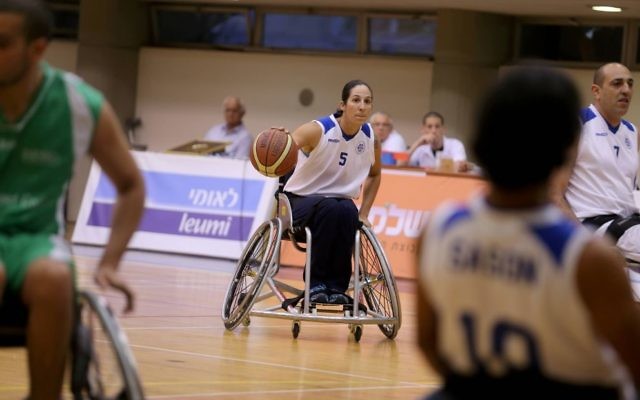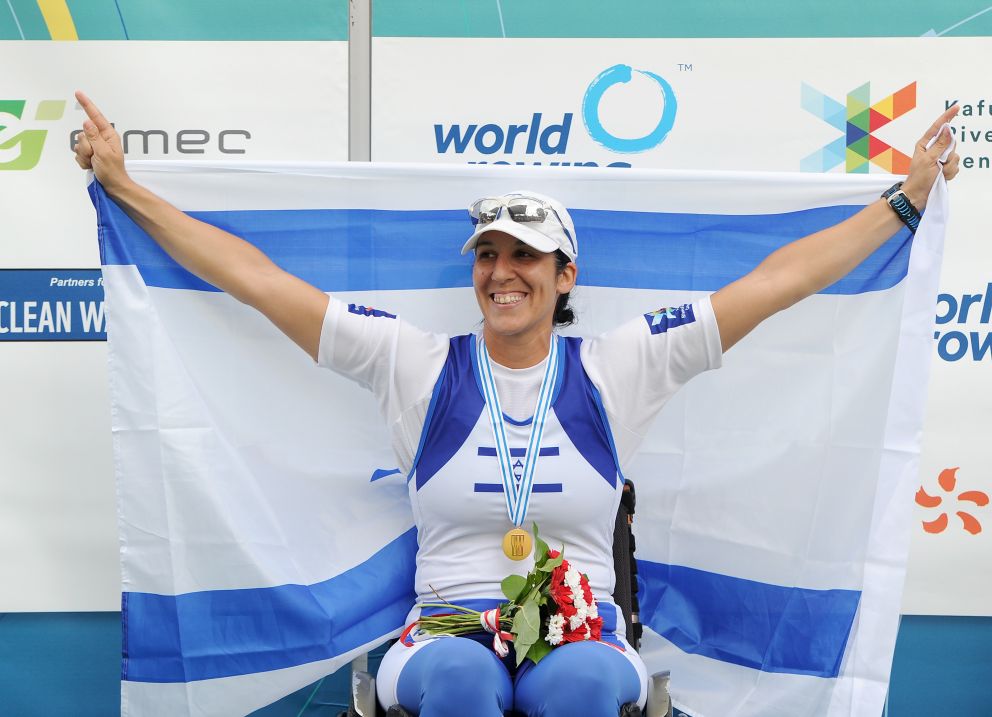Moran Samuel: From paralysis to podium
WHEN Israeli professional basketball player Moran Samuel was 24 years old, life was great. She was playing and coaching basketball and studying a Bachelor of Physiotherapy.
WHEN Israeli professional basketball player Moran Samuel was 24 years old, life was great. She was playing and coaching basketball and studying a Bachelor of Physiotherapy at Haifa University.
But one morning in September 2006, she woke up feeling that something wasn’t right.Two hours later, she was paralysed from her neck down after suffering a rare spinal stroke caused by an aneurysm. A small blood vessel had exploded, blocking the blood and oxygen supply to the spinal cord.
“It wasn’t a simple situation,” Samuel told The AJN.
“They took me into surgery and I was in a lot of pain. I knew enough to know what this all meant for me. I realised that my life was not going to be the same. The damage was permanent.”
Three months later, Samuel left the hospital and went to a rehabilitation centre, where she had to relearn everything from scratch.
“I couldn’t even dress myself,” she said.
“I was dependent on other people to do things that I used to be able to do. Getting from my bed to my wheelchair was hard. It was all hard. As an athlete, my body was my tool and the way I expressed myself, and suddenly even the simplest things were really difficult tasks.”
Samuel said that being an athlete helped her immensely during that time. She was driven by an inner motivation and the knowledge that she had the ability to be strong: “If I didn’t make positive changes, nobody would make them for me. Knowing that was a motivation for me to be active and not passive. I realised that the life that I knew was over, but life itself wasn’t.”
As she gained back some of her former skills and independence, Samuel decided that the best way to get on with her life was to go back to university. Graduating with a Bachelor of Physiotherapy, she then completed a Masters in Child Therapy and Education, and now teaches infants and children with disabilities.
“That’s my way of giving back,” she said. “It’s really something that helps me heal – doing something really good after something really bad has happened to me. I want them [the children] to understand that they are not defined by their disability. It is important to me that they see beyond their wheelchair and dream about a future.”
It took three years and an invitation from Beit Halochem for her to consider being an athlete again.
“Someone heard that I was once a talented basketball player now in a wheelchair, and they invited me to play wheelchair basketball with them,” Samuel said.
“It was different because it was harder, but once you pick it up, it’s the same game, but even more -exciting. It turns a disability into an ability.”
Samuel also started rowing, a decision that would take her to the Paralympic Games in London in 2012 and see her go on to win gold in the World Rowing Championships in France in 2015. That victory was her qualification for the Rio Paralympics in 2016. With her parents, brother and son waiting for her at the finish line, she crossed to win the bronze medal.
“I don’t have enough words to describe that experience,” she said. “Exactly a decade after my injury, I was on the podium. Every athlete that I know thinks of the Olympics as the ultimate goal. You can dream about it for years, but only a few get to make that dream come true. I was one of the lucky few.”
With her family crying tears of joy and her son Arad on her lap, medalling in Rio was a culmination of a 10-year journey to overcome her injury and become “able and whole” again.
“Even though I’m in a wheelchair, I’m still strong and fast and playing my favourite sports,” she said. “As we say in basketball, you miss a hundred per cent of the shots you don’t take. I don’t know what the future will bring, and it’s hard to make plans because things change so quickly, but you have to look towards what you can do in life, instead of what you can’t.”
Samuel credits a great part of her success to Beit Halochem, saying that she wouldn’t have become the athlete that she is today if it wasn’t for them.
“I always say that when I wheel into Beit Halochem, you leave your disability outside the door,” she said. “Beit Halochem gave me an opportunity and something that’s all you need in life – one opportunity. I was lucky enough to be adopted by the Beit Halochem family, and now I am in the position to mentor injured soldiers and share my strategies with them. It’s a two-way street.”
As a show of gratitude, Samuel raises awareness and funds for Beit Halochem, and talks to groups from all over the world about the work that Beit Halochem does with injured soldiers, terror victims and those with disabilities like herself.
To find out more about Beit Halochem, visit their website.
YAEL BRENDER



comments